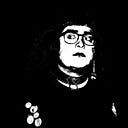A Body Coming in Touch with Itself
On the Lacanian Pass
[This short piece is part of my work during Jamieson Webster’s 2022 seminar on “Psychoanalysis and the Body.”]
Jamieson Webster’s discussion about conversion and the body in her book Conversion Disorder is fascinating for any clinical analyst and psychoanalytic theoretician who is interested on the notion of the Pass. The Pass is a contentious institutional procedure in psychoanalysis that was proposed by Jacques Lacan, whom interestingly enough had his own reservations about its practice.
In short, the Pass are the follow up testimonials after the end of analysis where the vain attempts that seek meaning in desiring in accordance to the idealistic picture of the Other vanish over to the assumption of the drive as the disruptive stain both in the Other and in the subject. These testimonies give us accounts of living under the experience of this conversion away from the secure anchoring point of the Other or from the self-indulgent posturing of a substantial identity of the subject, instead turning towards the singularity of its own ambiguous passage in coming to assuming its own strategies for living (Fink, 1999, 213; Lacan, 2017, 8–9).
This assumption of the drive at the end of analysis coincides with Webster’s discussion of conversion, as this radical change entails a radical refiguration of the measures by which one may have understood their existential position in terms of ideals and idealities prior to the rigor of analysis. As Webster notes: “Conversion, on the other hand, rearranges the pieces on the board, changes their function, and refuses to expend its energy on the distractions of anxiety” (Webster, 2022, 23).
One of the elements that is striking about Webster’s discussion of the conversion is this energetic discussion, which ultimately centers around the body, its intensities, and its assumption — in short, one learns to assume one’s body rather than losing oneself in the anxieties and overwhelmingness of the intensities of something like jouissance. The body learns to be in touch with itself when one moves from the meaningful ideations of desire to the radicality of the drive, as the body is coextensive with the drive insofar as the disruptions that punctuate the process of analysis centered around this body-drive which insists throughout the oscillations between subject and other, inside and outside (Webster, 2022, 11 and 12).
The transition from being analysand to being analyst can be thought as a conversion where the analyst learns to assume their body in thei clinic along the lines of learning to have a body, to assume the body in the full efficacy of it. The body of the analyst becomes something that can cut through the body of the analysand to deal with the question of separation and its anxieties, mobilizing desire in analysis, and dealing with the alienations of seeking meaning in desire by learning to assume the body-drive and its enjoyment.
But this conversion is not once and for all, it requires the repetition of assuming one’s own body and assuming one’s own style as an analyst — this is the thing about learning to pass as an analyst in a way that it is reminiscent of Freud’s dream about Irma’s injection and his anxieties around his failures and guilts, for instance in letting go of Wilhelm Fliess as an anchoring point of Freud’s clinical orientation onto assuming his own analytic body and the responsibility for his own clinical work.
References and Citations:
Fink, Bruce. A Clinical Introduction to Lacanian Psychoanalysis: Theory and Technique. Cambridge, MA: Harvard University Press, 1999.
Lacan, Jacques. “Proposition of 9 October 1967 on the Psychoanalyst of the School.” Trans. Russell Grigg. Lacan Circle, 2017:
https://lacancircle.com.au/wp-content/uploads/2017/11/Proposition_of_9_October.pdf
Webster, Jamieson. Conversion Disorder: Listening to the Body in Psychoanalysis. New York: Columbia University Press, 2022.
